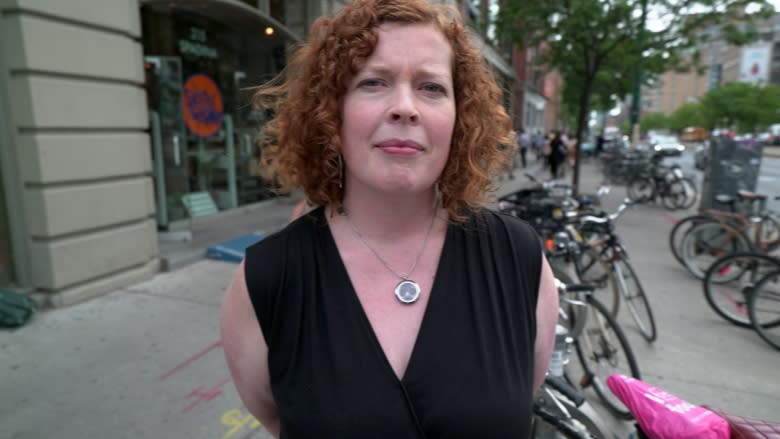Prosthetic-customized bike stolen amid rising thefts from condos, lockers
Sam Paulos thought he'd done everything right.
Paulos, whose left leg is amputated above the knee, always locked his customized bicycle in an underground storage area — a space with restricted entry and security cameras.
But even those efforts didn't stop thieves from stealing the roughly $850 bicycle earlier this summer.
"Two people broke into the facility, and it looked like they used a battery-powered grinder to saw through my U-lock and take my bike," he said. "And I was left without my precious bicycle."
According to the latest numbers released by Toronto police, reports of stolen bikes across the city are still on the rise, with more than 3,750 reported thefts last year alone and only 43 bikes recovered.
And for the first time since police began compiling this data, reports of stolen bikes from apartments, condos, and their private storage rooms and garages are higher than reports of bikes stolen off the street.
The total number of reported thefts has also spiked from under 3,000 in 2014 to more than 3,700 two years later.
Coupled with a one per cent recovery rate by police, it's all adding up to what some cycling advocates have called a "crisis" in need of more public awareness and police involvement.
Bicycles often stolen from lockers, condos
Liz Sutherland, director of advocacy and government relations at Cycle Toronto, says her organization often hears stories about people having their bicycles stolen, even from closed areas like lockers and condo buildings.
"More people are riding bikes so it would stand to reason that there isn't just an increase in reporting, but actual bikes being stolen," she said.
Finding out his bike was missing was both a surprising and frustrating moment for Paulos. The 51-year-old needed the specially-designed bike after surviving a bout of necrotizing fasciitis — more commonly known as flesh-eating disease — in 2011. Paulos developed the potentially-deadly infection after cutting his foot while swimming in a lake, and amputation was a life-saving measure.
"I don't want to be, or feel, that I'm restricted from doing anything," he said. "If I want to ride a bike, I should be able to ride a bicycle."
A local bicycle shop helped customize a regular bike to fit his prosthetic, Paulos said, which cost hundreds of extra dollars and hours of the shop staff's time.
After catching the thieves on his storage area's security camera, Paulos reported the theft to police — but doesn't expect to get the bike back, and plans on buying another one.
Sutherland believes police need to step up their efforts to address bike theft, through a dedicated unit or an enhanced registration system that is linked to other jurisdictions and allows photo uploads.
"I know they have a lot of priorities ... but it seems to me, this is something worth tackling," she said.
'We do take it seriously'
But police say it's a challenging crime to solve, whenever it takes place.
"We do take it seriously," said Const. Mike Lum-Walker, who travels by bike for his role in the community response unit in 14 Division. "Sometimes it's difficult to track down who the bike belongs to if you don't register your bike."
Currently, the Toronto police online bike registry allows people to share their personal information along with the serial number, model, colour, and make of bicycle. "Once we have that registration, it's actually quite an easy process to connect that bike to someone else, because we do come across a lot of stolen bikes," he added.
Const. Greg Payne, Lum-Walker's partner, stresses that prevention is still the key — meaning a good bike lock, for starters.
He also says not enough people are using the registry.
"We probably run serial numbers daily that come back to nothing," Payne said. "At that point, we basically can't do anything, even if we know it's stolen or feel it's stolen."
Where bikes are reported stolen in Toronto
Having trouble seeing the map? Click here for a direct link.



